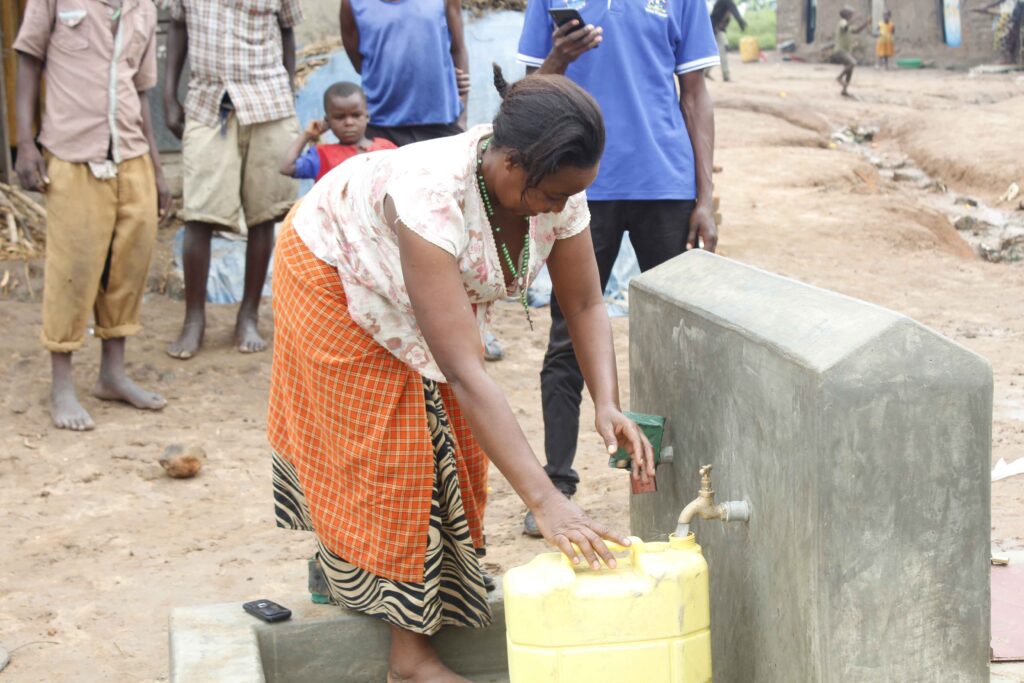


Safe drinking-water, sanitation and hygiene are crucial to human health and well-being. Safe WASH is not only a prerequisite to health, but contributes to livelihoods, school attendance and dignity and helps to create resilient communities living in healthy environments. Drinking unsafe water impairs health through illnesses such as diarrhoea, and untreated excreta contaminates groundwaters and surface waters used for drinking-water, irrigation, bathing and household purposes.
Over 14 million Ugandans (30 percent of the population) have no access to clean and safe water. Yet access to safe water and sanitation is a human right. Moreover, both entitlements – water and sanitation and good health – are enshrined in the Sustainable Development Goals (SDGs), Nr.6 and Nr. 3, respectively.
Water and sanitation are internationally recognized human rights that are universal, inalienable, indivisible, and interdependent. The WASH (Water, Sanitation and Hygiene) SDG rogramme – a multi-national consortium – responds to the Dutch government’s commitment to contribute to the Sustainable Development Goals, particularly SDG 6, with the aim of reaching an improved WASH situation for all.
Caritas Fort Portal is implementing WASH SDG 6 project in the Northern Region of Uganda, specifically in Agago sub-catchment. The program aims at contributing to sustainable and equitable access to and use of inclusive WASH services for communities through the adoption and scale-up of improved WASH behavioral practices. Various combinations of community-based approaches are being used to create awareness and understanding of WASH needs and rights by the communities and institutions. Using demand-driven approaches, the communities and institutions are realizing the need to invest in improved WASH services and are linked-up with WASH focused service providers and government WASH structures. The increased demand for, access to and use of improved WASH services will ultimately lead to sustainable access to and practice of inclusive WASH services by all. The project is engaging community members through different approaches, such as building partnerships/linkages with business enterprises and financial institutions to ensure that there is improvement in WASH service provision.